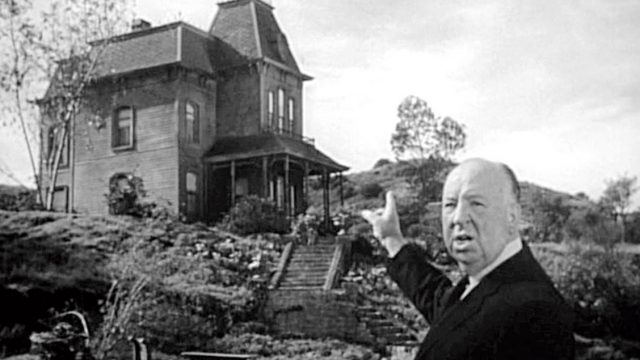The FAR has advice for film festivals, for movie trailer creators, for movie trailer watchers, for “best year” arguers, for really everybody everywhere. Advice is free, so save room for seconds.
Thanks to Rosy Fingers for contributing this week, I advise you all to give him the praise and respect he deserves. Send articles throughout the next week to ploughmanplods [at] gmail, post articles from the past week below for discussion, and Have a Happy Friday.
In considering this year’s changes to the Toronto Film Festival – which will be made available online to all areas of Canada, Mike D’Angelo for The AV Club advises festivals to continue holding online screenings even in future years:
Just as musicians now often give away their work in order to build an audience that will then pay to see them play live, festivals should understand that the young film fanatic who watches a few highly anticipated premieres online may later decide that they want to experience the real thing. (In this hypothetical case, they’re not even giving anything away—merely making it accessible from a distance.) Once you’ve had that pleasure, you’re not generally inclined to abandon it just for convenience’s sake. […] People who truly love cinema are the lifeblood of the festival economy, and they wouldn’t rather sit at home watching the new Takashi Miike on their laptops.
This week’s new Dune trailer promises to bring confusion to a whole new audience. Director Denis Villeneuve breaks it down for Christian Holub and Entertainment Weekly, worm and all:
“I think that as soon as you say, ‘okay, let’s make Dune,’ you go back home and the first thing you ask is, ‘okay, what about the worm?'” Villeneuve says. “It’s a fantastic central figure of Dune’s story, that massive creature that lives in the deep desert, so when we were creating the worm I tried to create a lifeform that you will totally believe can go and survive in this land. So of course it has to have some prehistoric quality to it, because it’s living in the most rough environment. It was a lot of dreaming. We took our time with it. I deeply love the worm we came up with. It was important for me to understand that this huge creature has a soul, to understand that it is revered as a god-like figure.”
For Crooked Marquee, Josh Spiegel talks about Psycho‘s bizarre 6-minute trailer that featured no actual scenes from the movie and advises other films to take up the mantel, like the unique 1999 trailer for The Minus Man:
The Minus Man inspires such a passionate debate that the couple talks all night, before the young woman realizes she’s late for work as a lifeguard. She dashes over and, upon entering the pool area, she’s shocked…to find two dead bodies. “Careful, you can talk about it for hours” is the ensuing tagline, hinting at surprises without telling you…anything about the movie (which is arguably remembered more for this trailer).
We advise all writers, starting with James Croot at Stuff, to pare your argument down to its best examples, lest you end up making a hilarious case for 1980 being “cinema’s greatest year” thus:
The Empire Strikes Back is most Star Wars fans’ favourite film, a rollicking, thrilling and emotional rollercoaster of a movie that is filled with exhilarating action sequences, dark drama and genuine surprises. It is also one of the many memorable and groundbreaking films that were released in 1980 – a prime contender for cinema’s greatest every year. This was the 12 months that gave us American Gigolo, Altered States, Blue Lagoon, Coal Miner’s Daughter, Fame, Flash Gordon, The Fog, The Final Countdown, The Gods Must Be Crazy, Friday the 13th, Heaven’s Gate, The Long Good Friday, Ordinary People, Private Benjamin, 9 to 5, Stir Crazy, Superman II and Xanadu all made some kind of cultural impact, many of which still resonate today.
And finally, Max Read, a most apt-named contributor to Bookforum, wonders if our relationships to social media are connected to the psychoanalytic concept of the death drive:
The social industry doesn’t just eat our time with endless stimulus and algorithmic scrolling; it eats our time by creating and promoting people who exist only to be explained to, people to whom the world has been created anew every morning, people for whom every settled sociological, scientific, and political argument of modernity must be rehashed, rewritten, and re-accounted, this time with their participation. These people, with their just-asking questions and vapid open letters, are dullards and bores, pettifoggers and casuists, cowards and dissemblers, time-wasters of the worst sort. But Seymour’s book suggests something worse about us, their Twitter and Facebook interlocutors: That we want to waste our time.

